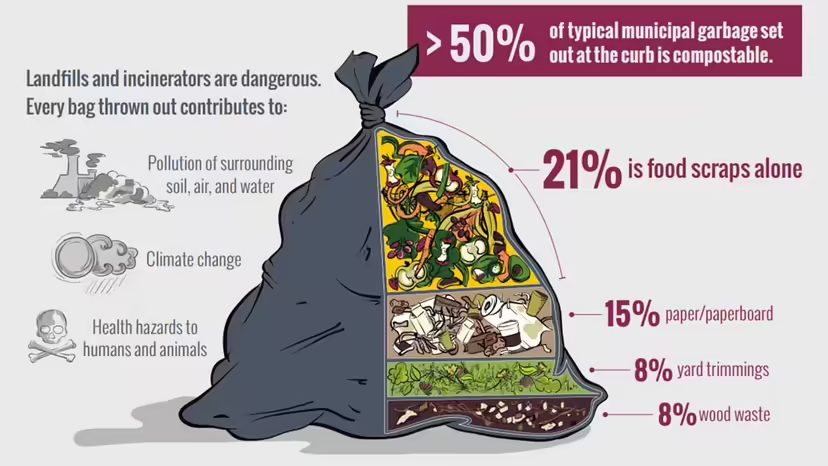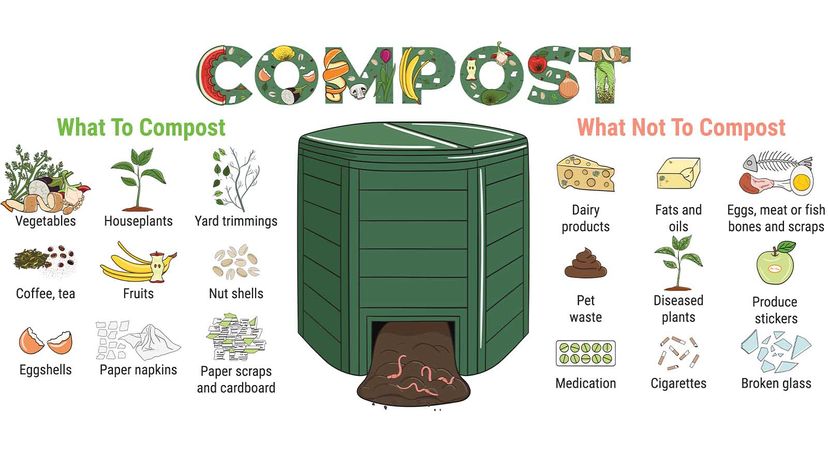What You Can Compost


Source from: Composting Biology
While composting, microorganisms consume the organic waste rich in carbon and break it down into its elemental components.
This process yields humus, a carbon-rich substance containing essential inorganic nutrients such as nitrogen, phosphorus, and potassium.
The breakdown of materials is facilitated through aerobic respiration, a process that necessitates oxygen.
Your role becomes crucial in providing this oxygen by turning the compost, as we'll delve into shortly.
The microorganisms also need water to live and multiply. Through the respiration process, the microorganisms give off carbon dioxide and heat. Temperatures within a compost pile can rise as high as 100 to 150 degrees Fahrenheit (38 to 66 degrees Celsius). If you manage your compost pile by turning and watering it regularly, it will decompose into finished compost within a few weeks.
The microorganisms also need water to live and multiply. Through the respiration process, the microorganisms give off carbon dioxide and heat. Temperatures within a compost pile can rise as high as 100 to 150 degrees Fahrenheit (38 to 66 degrees Celsius). If you manage your compost pile by turning and watering it regularly, it will decompose into finished compost within a few weeks.